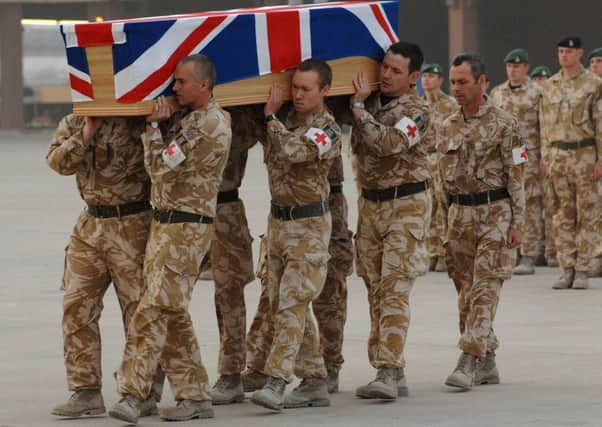Scotsman Leader: Iraq War has cast a shadow for too long


The 2003 Iraq War casts a long shadow over United Kingdom foreign policy. The blowback against former prime minister Tony Blair and those who supported his decision to commit British troops to that conflict has created in the current generation of political leaders an extreme caution when it comes to matters of military intervention.
This, in itself, is no bad thing. The deployment of troops must always be the last resort. But when the caution of politicians means a failure to step in when it is both appropriate and necessary, we are on shaky moral ground.
Advertisement
Hide AdAdvertisement
Hide AdThe UK government and international allies including France and the US are currently discussing the possibility of a military response to the alleged use by the Syrian government of chemical weapons in an attack that killed more than 40 people in the town of Douma.
A typically hotheaded intervention by Donald Trump via Twitter on Wednesday – in which he promised deployment of “smart” bombs – set a difficult tone. Fortunately, by yesterday some of the heat had been taken out of the situation.
French president Emmanuel Macron, who has previously said the use of chemical weapons in Syria would represent a “red line”, declared that he had proof the regime of Bashar al-Assad was behind the attack on Douma, but he was cautious about the next step, adding only that he would decide “in due course” whether to respond with air strikes.
Labour leader Jeremy Corbyn has asked for a full intelligence briefing on the situation in Syria. He also wants any decision on military intervention to be put to a parliamentary vote.
Naturally, many who favour Britain’s involvement in strikes against the Assad regime will be deeply sceptical about Mr Corbyn’s intentions. He was, after all, once chairman of the Stop the War Coalition, which condemns military action by western governments.
This lack of trust is at the heart of politicians’ inability to move on from the Iraq War when discussing possible deployment of British troops. A common characteristic of those who felt strongly either way about the 2003 intervention is the belief that those with whom they disagree are acting in bad faith.
It is time for our national debate to get past Iraq and for politicians to honestly assess the merits of action on the basis of humanitarian need rather than political risk.
